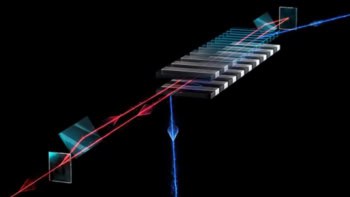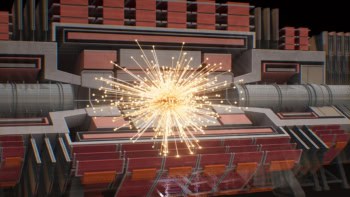
A plan to increase the lifespan of Fermilab’s Tevatron collider for a further three years was given a boost yesterday when an advisory panel to the US Department of Energy (DOE) recommended the extension.
The Tevatron, which collides protons with antiprotons, is due to close in September 2011 when work will begin adapting parts of the accelerator to produce neutrinos and muons. In late August, however, Fermilab’s Physics Advisory Committee recommended that collisions at the Tevatron should instead continue until 2014 to take advantage of a 15 month shutdown of the rival Large Hadron Collider (LHC) at CERN in 2012.
Fermilab director Pier Oddone last month unveiled a financial plan to keep the collider going for an extra three years, which would cost around $50m a year. Around $15m would be freed up by delaying the NOvA neutrino and the Mu2e muon experiments but an additional $35m per year would still be needed to fund the Tevatron through to 2014.
Yesterday, the DOE’s 21-member High Energy Physics Advisory Panel (HEPAP) committee recommended the extension. “With a three-year extension, [the Tevatron] could make a significant contribution to understanding the central issue of our field, the existence and nature of the Higgs boson, complementing the information physicists can expect from the LHC while it ramps up to its full energy and luminosity,” the report says.
“With extended running, the two Tevatron experiments — D0 and CDF — have an excellent chance of finding evidence for the Higgs boson if it exists.” says D0 spokesperson Stefan Soeldner-Rembold from the University of Manchester. “I am confident that Fermilab and the DOE will provide the financial support to make the extension possible.”
Finding funds
However, the panel warns that finding the extra $35m should not come at the detriment of the nation’s high-energy physics programmes. “The panel recommends that the agencies proceed with a three-year extension of the Tevatron program if the resources required to support such an extension become available in addition to the present funding for [high-energy physics],” the report says. “Given the strong physics case, we encourage the funding agencies to try to find the needed additional resources.”
The DOE will now work on its budget request to be sent to US President Barack Obama. The final decision, however, will lie with the Obama administration, which will present its budget request for 2012 to Congress in February 2011.



